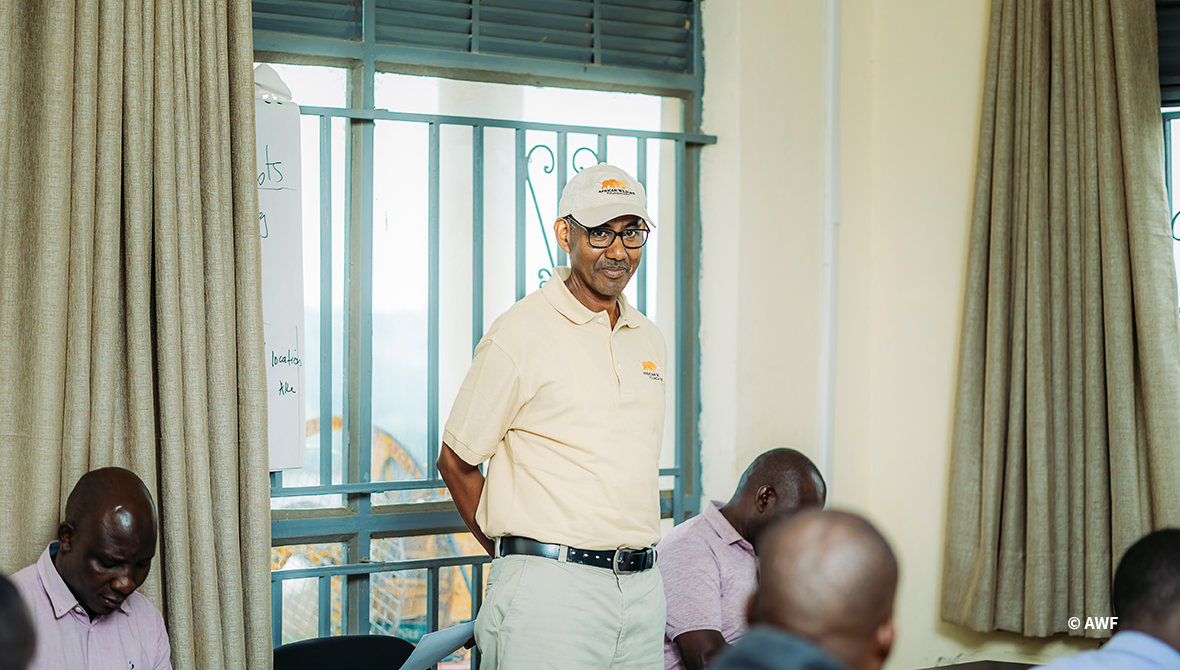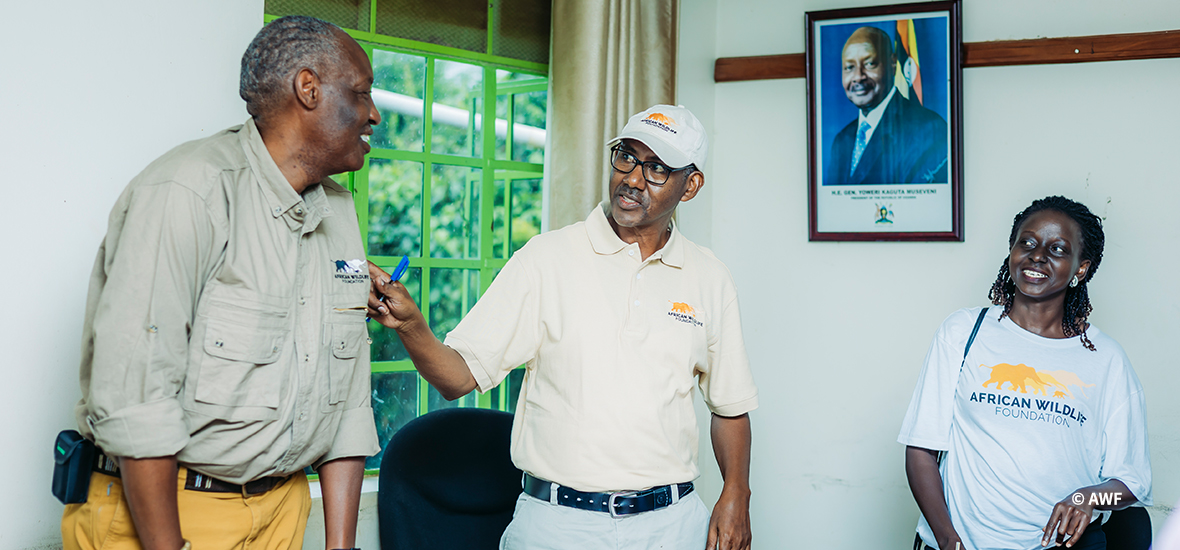Chance Conservationist: Patrick Agaba’s Transition from Political Science to Conservation

Chance Conservationists is a series highlighting AWF staff who have embraced people-centered conservation in their professions despite coming from diverse academic fields. These remarkable individuals now espouse conservation values to propel the organization’s vision for sustainable development and biodiversity protection.
Patrick Agaba's love for wildlife blossomed early on, sparked by an experience in his childhood when his uncle saved an orphaned sitatunga. This animal, raised alongside the family's cattle and other domestic animals, became a cherished household member.
This initial interaction with wildlife proved pivotal for Patrick, influencing his eventual shift from political science to a career dedicated to conservation. In 2022, he became a project officer at the African Wildlife Foundation (AWF), working within the Murchison landscape.
"I was raised in Ntungamo, a district in southwestern Uganda, where I developed a profound connection with nature. The district boasts a 25-kilometer wetland that spans various districts," he noted. "Once home to herds of buffaloes, the wetland sadly saw its last buffalo in 1984."
This incident sparked curiosity at a young age, which eventually evolved into a remarkable journey dedicated to nature conservation.
"Residents would spend a week in the wetland just to catch a glimpse of an antelope. However, the brutal killing of a sitatunga by hunters left a deep impact on me and my brothers," he recalls.
Although distinguished in sciences and initially aspiring for engineering, fate led him to study political science and geography at Makerere University. Yet, his unwavering affection for nature endured.
Post-graduation life saw Patrick join Aquatics Unlimited—a US-based firm tasked by the Ugandan government with managing water hyacinth—where he led efforts against this invasive plant in Lake Victoria from 1996 to 2003.
A turning point came when he embraced an opportunity with a tourism entity; it broadened his wildlife knowledge and fueled his conservation zeal. By 2006, conservation became his professional domain—a commitment that earned him the David Shepherd Conservation Champion Award in 2019.

"This experience not only expanded my knowledge of wildlife but also ignited my enthusiasm for conservation. In 2006, I boldly transitioned into conservation, where I have been actively involved ever since."
With over fourteen years under his belt, Patrick has spearheaded initiatives addressing challenges faced by wildlife and fishing communities within protected areas.
His contributions towards restoring relationships between rangers and communities are notable—as is reconnecting Queen Elizabeth and Kibale protected areas through Greater Dura.
Joining AWF
In April of 2022, AWF beckoned—its mission resonating deeply with Patrick’s lifelong dedication to preserving wild spaces. For two years in the Murchison landscape, Patrick was pivotal in designing and implementing conservation initiatives that directly impact local ecosystems and communities.
He contributes to AWF’s holistic approach to conservation, combining community engagement, research, and sustainable practices.
"I am fascinated by Uganda’s rich biodiversity and hidden gems. I am committed to sharing my passion for conservation and mentoring the younger generation. I always try to take my children to protected areas for exposure, and they love it," says Patrick.
His dedication extends to grooming the next generation of conservationists. "Uganda’s diverse ecosystems enchant me," shares Patrick.
AWF's Commitment to Conservation in Uganda
Since 2013, AWF has been a driving force for positive change in the Murchison Falls landscape. Their efforts encompass a wide range of initiatives, including sustainable land management practices, climate change adaptation and resilience programs, and robust wildlife law enforcement.
AWF has played a crucial role in establishing Uganda's first conservancies and promoting community-based conservation. Their programs also address human-wildlife conflict through innovative solutions like chili pepper farming to deter elephants.
Furthermore, AWF empowers youth through environmental education and awareness programs, ensuring a future generation equipped to protect their natural heritage.